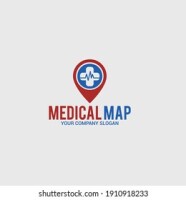About Map of medicine
Map of Medicine: Revolutionizing Healthcare with Evidence-Based Solutions
Welcome to Hearst Health International, a network of companies that are dedicated to improving healthcare outcomes through innovative solutions. One of the key players in this network is Map of Medicine, a company that has been at the forefront of evidence-based healthcare for over 20 years.
Map of Medicine was founded in 2000 by Dr. Mike Stein and Dr. Simon Kos, two physicians who recognized the need for a more structured approach to clinical decision-making. They developed an online platform that would provide clinicians with access to the latest evidence-based guidelines and pathways, enabling them to make more informed decisions about patient care.
Since then, Map of Medicine has grown into a global company with offices in Europe, North America, and Asia-Pacific. Its platform is used by thousands of healthcare organizations around the world, including hospitals, clinics, and health systems.
So what exactly does Map of Medicine do? At its core, it provides evidence-based clinical pathways that guide clinicians through every step of a patient's care journey. These pathways are based on the latest research and best practices from leading medical organizations around the world.
For example, if a patient presents with chest pain in an emergency department (ED), there may be dozens or even hundreds of possible diagnoses and treatment options. With Map of Medicine's ED pathway for chest pain, however, clinicians can quickly narrow down their options based on factors such as age, gender, risk factors (e.g., smoking), symptoms (e.g., shortness of breath), vital signs (e.g., blood pressure), lab results (e.g., troponin levels), imaging studies (e.g., ECG), and more.
The pathway will then guide clinicians through each step in the diagnostic process - ordering tests such as blood work or imaging studies - as well as treatment options such as medications or procedures like angioplasty or stenting if necessary.
This approach has several benefits. First, it ensures that patients receive the most appropriate care based on their individual needs and circumstances. Second, it helps to standardize care across different clinicians and settings, reducing variability and improving outcomes. Third, it can help to reduce costs by avoiding unnecessary tests or treatments.
But Map of Medicine's platform is much more than just clinical pathways. It also includes a range of other tools and resources that can help healthcare organizations improve their operations and performance.
For example, its analytics dashboard provides real-time data on key performance indicators such as length of stay, readmission rates, and patient satisfaction scores. This allows organizations to identify areas for improvement and track progress over time.
Its patient education materials provide clear, concise information on a wide range of health topics - from diabetes management to cancer screening - in multiple languages. This can help patients better understand their conditions and treatment options, leading to better adherence and outcomes.
And its integration with electronic health records (EHRs) allows clinicians to access Map of Medicine's pathways directly within their workflow - saving time and reducing errors.
All of these features are designed with one goal in mind: improving healthcare outcomes for patients while also making the lives of clinicians easier. And they seem to be working: studies have shown that using Map of Medicine's pathways can lead to significant improvements in quality metrics such as mortality rates, length of stay, readmissions, and more.
So if you're looking for a partner in evidence-based healthcare innovation - whether you're a hospital system looking to improve your operations or a clinician looking for better decision support tools - look no further than Map of Medicine. With its proven track record of success and commitment to excellence, it's the clear choice for anyone who wants to deliver the best possible care for their patients.

